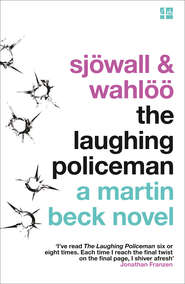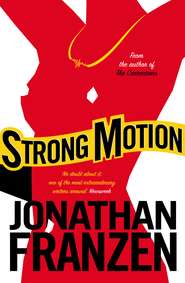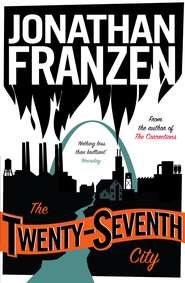По всем вопросам обращайтесь на: info@litportal.ru
(©) 2003-2024.
✖
The Corrections
Автор
Год написания книги
2018
Настройки чтения
Размер шрифта
Высота строк
Поля
“The W—— Corporation,” he said, “is currently defending three separate lawsuits for antitrust violations. Its revenues last year exceeded the gross domestic product of Italy. And now, to wring dollars out of the one demographic that it doesn’t yet dominate, it’s running a campaign that exploits a woman’s fear of breast cancer and her sympathy with its victims. Yes, Melissa?”
“It’s not cynical.”
“What is it, if not cynical?”
“It’s celebrating women in the workplace,” Melissa said. “It’s raising money for cancer research. It’s encouraging us to do our self-examinations and get the help we need. It’s helping women feel like we own this technology, like it’s not just a guy thing.”
“OK, good,” Chip said. “But the question is not whether we care about breast cancer, it’s what breast cancer has to do with selling office equipment.”
Chad took up the cudgels for Melissa. “That’s the whole point of the ad, though. That if you have access to information, it can save your life.”
“So if Pizza Hut puts a little sign about testicular self-exams by the hot-pepper flakes, it can advertise itself as part of the glorious and courageous fight against cancer?”
“Why not?” Chad said.
“Does anybody see anything wrong with that?”
Not one student did. Melissa was slouching with her arms crossed and unhappy amusement on her face. Unfairly or not, Chip felt as if she’d destroyed in five minutes a semester’s worth of careful teaching.
“Well, consider,” he said, “that ‘You Go, Girl’ would not have been produced if W—— had not had a product to sell. And consider that the goal of the people who work at W—— is to exercise their stock options and retire at thirty-two, and that the goal of the people who own W—— stock” (Chip’s brother and sister-in-law, Gary and Caroline, owned a great deal of W—— stock) “is to build bigger houses and buy bigger SUVs and consume even more of the world’s finite resources.”
“What’s wrong with making a living?” Melissa said. “Why is it inherently evil to make money?”
“Baudrillard might argue,” Chip said, “that the evil of a campaign like ‘You Go, Girl’ consists in the detachment of the signifier from the signified. That a woman weeping no longer just signifies sadness. It now also signifies: ‘Desire office equipment.’ It signifies: ‘Our bosses care about us deeply.’”
The wall clock showed two-thirty. Chip paused and waited for the bell to ring and the semester to end.
“Excuse me,” Melissa said, “but that is just such bullshit.”
“What is bullshit?” Chip said.
“This whole class,” she said. “It’s just bullshit every week. It’s one critic after another wringing their hands about the state of criticism. Nobody can ever quite say what’s wrong exactly. But they all know it’s evil. They all know ‘corporate’ is a dirty word. And if somebody’s having fun or getting rich—disgusting! Evil! And it’s always the death of this and the death of that. And people who think they’re free aren’t ‘really’ free. And people who think they’re happy aren’t ‘really’ happy. And it’s impossible to radically critique society anymore, although what’s so radically wrong with society that we need such a radical critique, nobody can say exactly. It is so typical and perfect that you hate those ads!” she said to Chip as, throughout Wroth Hall, bells finally rang. “Here things are getting better and better for women and people of color, and gay men and lesbians, more and more integrated and open, and all you can think about is some stupid, lame problem with signifiers and signifieds. Like, the only way you can make something bad out of an ad that’s great for women—which you have to do, because there has to be something wrong with everything—is to say it’s evil to be rich and evil to work for a corporation, and yes, I know the bell rang.” She closed her notebook.
“OK,” Chip said. “On that note. You’ve now satisfied your Cultural Studies core requirement. Have a great summer.”
He was powerless to keep the bitterness out of his voice. He bent over the video player and gave his attention to rewinding and re-cuing “You Go, Girl” and touching buttons for the sake of touching buttons. He sensed a few students lingering behind him, as if they wanted to thank him for teaching his heart out or to tell him they’d enjoyed the class, but he didn’t look up from the video player until the room was empty. Then he went home to Tilton Ledge and started drinking.
Melissa’s accusations had cut him to the quick. He’d never quite realized how seriously he’d taken his father’s injunction to do work that was “useful” to society. Criticizing a sick culture, even if the criticism accomplished nothing, had always felt like useful work. But if the supposed sickness wasn’t a sickness at all—if the great Materialist Order of technology and consumer appetite and medical science really was improving the lives of the formerly oppressed; if it was only straight white males like Chip who had a problem with this order—then there was no longer even the most abstract utility to his criticism. It was all, in Melissa’s word, bullshit.
Lacking the spirit to work on his new book, as he’d planned to do all summer, Chip bought an overpriced ticket to London and hitchhiked to Edinburgh and overstayed his welcome with a Scottish performance artist who had lectured and performed at D—— the previous winter. Eventually the woman’s boyfriend said, “Time to be off now, laddie,” and Chip hit the road with a backpack full of Heidegger and Wittgenstein that he was too lonely to read. He hated to think of himself as a man who couldn’t live without a woman, but he hadn’t been laid since Ruthie dumped him. He was the only male professor in D—— history to have taught Theory of Feminism, and he understood how important it was for women not to equate “success” with “having a man” and “failure” with “lacking a man,” but he was a lonely straight male, and a lonely straight male had no equivalently forgiving Theory of Masculinism to help him out of this bind, this key to all misogynies:
¶ To feel as if he couldn’t survive without a woman made a man feel weak;
¶ And yet, without a woman in his life, a man lost the sense of agency and difference that, for better or worse, was the foundation of his manhood.
On many a morning, in green Scottish places splashed with rain, Chip felt close to escaping this spurious bind and regaining a sense of self and purpose, only to find himself at four in the afternoon drinking beer at a train station, eating chips and mayonnaise, and hitting on Yankee college girls. As a seducer, he was hampered by ambivalence and by his lack of the Glaswegian accent that made American girls go weak in the knees. He scored exactly once, with a young hippie from Oregon who had ketchup stains on her chemise and a scalpy smell so overpowering that he spent much of the night breathing through his mouth.
His failures seemed more funny than squalid, though, when he came home to Connecticut and regaled his misfit friends with stories at his own expense. He wondered if somehow his Scottish depression had been the product of a greasy diet. His stomach heaved when he remembered the glistening wedges of browned whateverfish, the glaucous arcs of lipidy chips, the smell of scalp and deep-fry, or even just the words “Firth of Forth.”
At the weekly farmers’ market near D—— he loaded up on heirloom tomatoes, white eggplants, and thin-skinned golden plums. He ate arugula (“rocket,” the old farmers called it) so strong it made his eyes water, like a paragraph of Thoreau. As he remembered the Good and the Healthful, he began to recover his self-discipline. He weaned himself off alcohol, got better sleep, drank less coffee, and went to the college gym twice a week. He read the damned Heidegger and did his crunches every morning. Other pieces of the self-improvement puzzle fell into place, and for a while, as cool working weather returned to the Carparts Creek valley, he experienced an almost Thoreauvian well-being. Between sets on the tennis court, Jim Leviton assured him that his tenure review would be a mere formality—that he shouldn’t worry about competing with the department’s other young theorist, Vendla O’Fallon. Chip’s fall course load consisted of Renaissance Poetry and Shakespeare, neither of which required him to rethink his critical perspectives. As he girded himself for the last stage of his ascent of Mount Tenure, he was relieved to be traveling light; almost happy, after all, not to have a woman in his life.
He was at home on a Friday in September, making himself a dinner of broccoli rabe and acorn squash and fresh haddock and looking forward to a night of grading papers, when a pair of legs sashayed past his kitchen window. He knew this sashay. He knew the way Melissa walked. She couldn’t pass a picket fence without trailing her fingertips against it. She stopped in hallways to do dance steps or hopscotch. She went backwards or sideways, or skipped, or loped.
Her knock on his screen door was not apologetic. Through the screen he saw that she had a plate of cupcakes with pink frosting.
“Yeah, what’s up?” he said.
Melissa raised the plate on upturned palms. “Cupcakes,” she said. “Thought you might be needing some cupcakes in your life right around now.”
Not being theatrical, Chip felt disadvantaged around people who were. “Why are you bringing me cupcakes?” he said.
Melissa knelt and set the plate on his doormat among the pulverized remains of ivy and dead tulips. “I’ll just leave them here,” she said, “and you can do whatever you want with them. Goodbye!” She spread her arms and pirouetted off the doorstep and ran up the flagstone path on tiptoe.
Chip went back to wrestling with the haddock filet, through the center of which ran a blood-brown fault of gristle that he was determined to cut out. But the fish had a starchy grain and was hard to get a grip on. “Fuck you, little girl,” he said as he threw the knife into the sink.
The cupcakes were full of butter and frosted with a butter frosting. After he’d washed his hands and opened a bottle of Chardonnay he ate four of them and put the uncooked fish in the refrigerator. The skins of the overbaked squash were like inner-tube rubber. Cent Ans de Cinéma Erotique, an edifying video that had sat on a shelf for months without making a peep, suddenly demanded his immediate and full attention. He lowered the blinds and drank the wine, and brought himself off again and again, and ate two more cupcakes, detecting peppermint in them, a faint buttery peppermint, before he slept.
The next morning he was up at seven and did four hundred crunches. He immersed Cent Ans de Cinéma Erotique in dishwater and rendered it, so to speak, non-combustible. (He’d done this with many a pack of cigarettes while kicking the habit.) He had no idea what he’d meant when he’d thrown the knife into the sink. His voice had sounded nothing like him.
He went to his office in Wroth Hall and graded papers. He wrote in a margin: Cressida’s character may inform Toyota’s choice of product name; that Toyota’s Cressida informs the Shakespearean text requires more argument than you present here. He added an exclamation point to soften his criticism. Sometimes, when ripping apart especially feeble student work, he drew smiley faces.
Spell-check! he exhorted a student who’d written “Trolius” for “Troilus” throughout her eight-page paper.
And the ever-softening question mark. Beside the sentence “Here Shakespeare proves Foucault all too right about the historicity of morals,” Chip wrote: Rephrase? Perhaps: “Here the Shakespearean text seems almost to anticipate Foucault (better: Nietzsche?)…”?
He was still grading papers five weeks later, ten or fifteen thousand student errors later, on a windy night just after Halloween, when he heard a scrabbling outside his office door. Opening the door, he found a dime-store trick-or-treat bag hanging from the hall-side doorknob. The leaver of this gift, Melissa Paquette, was backpedaling up the hall.
“What are you doing?” he said.
“Just trying to be friends,” she said.
“Well, thanks,” he said. “I don’t get it.”
Melissa came back down the hall. She was wearing white painter’s overalls, a long-sleeve thermal undershirt, and hot-pink socks. “I went trick-or-treating,” she said. “This was like one-fifth of my haul.”
She stepped closer to Chip and he backed away. She followed him into his office and circled it on tiptoe, reading titles on his shelves. Chip leaned against his desk and folded his arms tightly.
“So I’m taking Theory of Feminism with Vendla,” Melissa said.
“That would be the logical next step. Now that you’ve rejected the nostalgic patriarchal tradition of critical theory.”
“Exactly my thinking,” Melissa said. “Unfortunately, her class is so bad. People who took it with you last year said it was great. But Vendla’s idea is that we should sit around and talk about our feelings. Because the Old Theory was about the head, see. And therefore the New True Theory has to be about the heart. I’m not convinced she’s even read all the stuff she assigns us.”
Through his open door Chip could see the door of Vendla O’Fallon’s office. It was papered with healthful images and adages—Betty Friedan in 1965, beaming Guatemalan peasant women, a triumphant female soccer star, a Bass Ale poster of Virginia Woolf, SUBVERT THE DOMINANT PARADIGM—that reminded him, in a dreary way, of his old girlfriend Tori Timmelman. His feeling about decorating doors was: What are we, high-school kids? Are these our bedrooms?
“So basically,” he said, “even though you thought my class was bullshit, it now seems like a superior brand of bullshit because you’re taking hers.”
Melissa blushed. “Basically! Except you’re a much better teacher. I mean, I learned a ton from you. That’s what I wanted to tell you.”
















